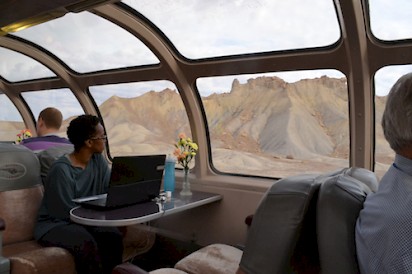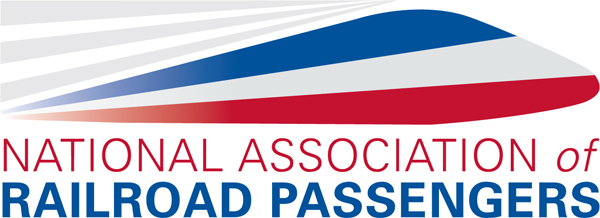Experience-seeking millennials question car dependence, turn to trains
August 22, 2013
Written By Colin Leach
Detroit’s automakers have long counted on new generations purchasing their wares as readily as their parents. And with good reason: car culture has been an integral part of Americans’ lives for so long. For so many, coming of age included getting a driver’s license and the first in a succession of many personal cars. Owning a car was understood to be as American as apple pie.

But for the millennial generation, car ownership is not the rite of passage it once was. Many millennials are asking the one question that automakers never thought anyone would: Do I need a car? Speaking to NPR’s Noah Nelson, Northwestern University professor Jill Hennessy observed that automakers never envisioned a day where anyone would question the need to own a car. In their minds, such was a “stupid question, because of course everybody wants to own a car.”
Many millennials, on the other hand, are not so eager. Hennessy explained that millennials first ask themselves the question of whether or not they need the car before the purchase one. And for some millennials, they don’t. NPR’s Nelson also spoke to Alyssa Rosenthal in Los Angeles, a young makeup artist who has been living there without a car for two years. When asked why she did not own a car, Rosenthal replied that she simply did not need one due to the wide variety of public transit options. While she described her commute as challenging, she expressed hope it would get easier in the future. “Public transit is really blowing up in L.A. right now. The trains go a lot of places, and it makes it easier to get to locations...”
Millennials’ disdain for car ownership indicates a broader shift in attitudes towards ownership. Millennials are unique among postwar American generations in that their consumption patterns are geared more towards experiences than possessions; an attitude Hennessy says stems from their coming-of-age during the worst economic crisis since the Great Depression. “They’re much more likely to find value in experiences than in things.”
Millennials’ belief in the importance of experiences over material possessions makes them natural train travelers. That was what NARP Outreach and Engagement Director Malcolm Kenton found while participating in the Millennial Trains Project. Kenton’s project, “Trains Revitalizing America,” examined popular attitudes towards the glory days of train travel, its status today, and prospects for future expansion.

As historian Alfred Runte lays out in his seminal 2006 book Allies of the Earth(available through the NARP Bookstore), the nature of passenger trains is to forge connections—not just between stations and cities, but also amongst passengers who take part in the convivial atmosphere of dining and lounge cars, and between passengers and the landscape, which trains present to riders in an incomparable way. After hearing Kenton’s explanation of why the US lacks the level of train service most other industrialized countries enjoy, many told him they had been converted into rail advocates, and at least one joined NARP! Some offered ideas for how long-distance trains could be marketed to Millennials as an authentic way to disconnect from virtual reality and reconnect with the country’s pioneering roots and the grandeur of its mountains, rivers, forests, fields and plains.Kenton noted that none of his fellow MTP participants had previously traveled on an overnight train across the United States. While a few had experience with overnight train travel in Europe and India, none had yet experienced anything in the U.S. more than urban commuter rail and Amtrak corridor trains. “Everyone”, he said, “was amazed by seeing the Rockies through a dome car’s windows.” Several said that being able to see America close-up coast-to-coast made them rethink their attitudes towards train travel, viewing it as an experience in and of itself as well as a comfortable, safe, eco-friendly means of transportation.
As might be expected, millennials are among those taking action to save passenger services threatened by budget cutbacks. Micah Matlock, president of the Purdue University Student Senate, is one of these. Matlock joined community and business leaders in Lafayette, Indiana to speak in favor of continuing the Hoosier State between Chicago and Indianapolis. In his view, access to train service had particular significance for the university, many of whose students are international or from out of state and “don’t have driver’s licenses.” Keeping the Hoosier State alive, he argued, helped bring more money “from out of the country and out of the state into Indiana.”
Millennials recognize that convenient access to fast and frequent intercity and regional rail transportation represents a significant addition to the larger quality of life. But the train system that tomorrow’s leaders want must be built today. NARP will continue its efforts to fight for that future.
